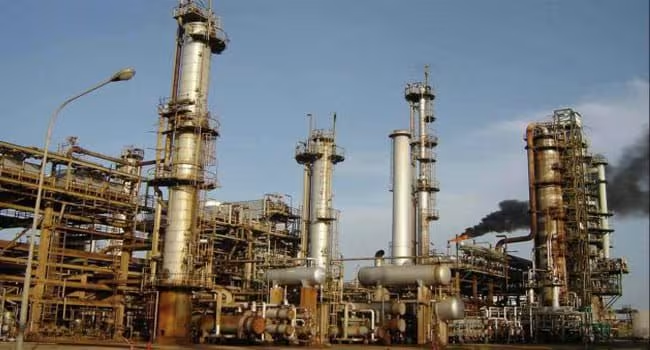Fuel Price Surge: New 15% Import Duty and NNPCL’s Last-Ditch Refinery Review
Nigeria is facing another potential hike in fuel prices following the recent approval of a 15% ad-valorem import duty on Premium Motor Spirit (PMS), or petrol, and diesel. This policy shift, conveyed via a presidential approval on October 21, 2025, aims to align import costs with domestic financial realities.

However, this development immediately threatens to exacerbate the cost-of-living crisis, pushing the estimated price of petrol up by nearly ₦100 per litre just two years after the removal of the fuel subsidy caused prices to skyrocket by over 400%.
The Immediate Impact of the 15% Import Duty
The newly approved 15% ad-valorem import duty is calculated on the Cost, Insurance, and Freight (CIF) value of the imported petroleum products. This policy has two significant consequences:
Increased Landing Costs: By applying a percentage duty on the total cost of bringing the fuel into the country, the government is directly increasing the landing cost for importers. This expense is inevitably passed on to the consumer at the pump.
Higher Inflation: Nigeria still relies heavily on imports for its fuel needs. Raising the price of PMS and diesel—which are essential for transportation, electricity generation, and industrial activity—acts as a multiplier on inflation, making food, services, and manufactured goods more expensive.
This move underscores the precarious position of Nigeria’s energy sector, where domestic demand heavily outweighs local refining capacity, making the nation subject to global market prices and internal fiscal policies like this new duty.

The Refinery Conundrum: A Race Against Time
In the face of impending price increases, the Nigerian National Petroleum Company Limited (NNPCL) has once again reiterated its commitment to reactivating the country’s three key refineries in Port Harcourt, Warri, and Kaduna.
NNPCL Group CEO, Bayo Ojulari, announced a fresh technical and commercial review aimed at determining the long-term operational and financial viability of these facilities. The goal is to either ‘high-grade’ or ‘repurpose’ them for optimal performance and sustainability.
Why Another Review?
The urgency of this review is directly tied to the new financial pressure points:
Failure of Past Investments: Despite an estimated $3 billion allocated for recent rehabilitation phases, the refineries remain largely dysfunctional. The Warri refinery’s return to production was brief and unsuccessful, and the Kaduna facility remains offline.
Need for Domestic Buffer: Restoring local refining capacity is the only sustainable long-term solution to mitigate the impact of rising global crude prices and the new import duty. If Nigeria refines its own fuel, it eliminates the need to pay import duties, freight, and insurance costs that currently burden the consumer.
Seeking Strategic Partnerships: The NNPCL is focused on securing Technical Equity Partners—experienced global operators—to introduce world-class operational models and prevent the return to the costly, unsustainable maintenance cycles of the past.
The Options Explained: High-Grade vs. Repurpose
High-Grade: This involves a total modernization to make the plant competitive globally, not just functional. It ensures the refineries produce higher-value, cleaner fuels (like Euro 5-compliant products).
Repurpose: If the technical assessment deems full rehabilitation unviable or too costly, the facilities may be converted to serve other critical energy needs, such as gas processing or petrochemical production, ensuring the assets still generate revenue rather than decay.

The outcome of this review will be critical. Successfully reviving the refineries would offer a stable, cheaper source of domestic fuel, easing the hardship caused by the recent subsidy removal and the new import duty. Failure, however, would cement Nigeria’s status as a perpetual net importer of refined products, leaving its economy vulnerable to external shocks and continued price volatility.
SEO and Educational Takeaways
| Key SEO Term | Explanation | Relevance to Topic |
|---|---|---|
| Ad-Valorem Duty | A tax calculated as a percentage of the value of goods (Cost, Insurance, Freight). | Directly causes the fuel price increase. |
| PMS Import Cost | The total expenditure of bringing petrol into Nigeria. | The duty significantly inflates this critical economic metric. |
| Refinery High-Grade | NNPCL’s new strategy to modernize old refineries for optimal, profitable output. | The long-term solution to mitigating price hikes. |
| Energy Security | The availability of energy sources at an affordable price. | Nigeria’s lack of refining capacity compromises its security. |
| Cost-of-Living Crisis | The ongoing economic challenge of rising prices for essential goods and services. | The direct result of policy decisions like the new import duty. |
The Nigerian government faces a delicate balance: addressing national revenue needs through duties, while simultaneously pursuing the only true long-term solution—domestic refining—to ease the economic burden on its citizens.
Join Our Social Media Channels:
WhatsApp: NaijaEyes
Facebook: NaijaEyes
Twitter: NaijaEyes
Instagram: NaijaEyes
TikTok: NaijaEyes




